Heinrich Himmler
A review of Otto Rahn’s study of Grail lore by John J. Reilly
Anyone who undertakes the study of the intellectual underpinnings of Nazi Germany (1933-1945) will soon notice that at least some members of the regime were doing things that are not covered by the typical survey course in political theory. Researchers who attempt to investigate these anomalies will dig through a swamp of popular and crank literature about the Third Reich’s connection to the occult underground, some of it coincident with conspiracy theory and some of it (often the most coherent works) purely fictional. Nonetheless, a sober study of primary sources will reveal that not all the fantastic rumors were made up out of whole cloth.
The original Indiana Jones: Otto Rahn and the temple of doom
As Indiana Jones returns to our screens, John Preston looks at the Nazi archaeologist who inspired Spielberg's hero, and finds a story more bizarre than anything the director could have dreamt of
Very little is certain in the short life of Otto Rahn. But one of the few things one can with any confidence say about him is that he looked nothing like Harrison Ford. Yet Rahn, small and weasel-faced, with a hesitant, toothy smile and hair like a neatly contoured oil slick, undoubtedly served as inspiration for Ford's most famous role, Indiana Jones.
Like Jones, Rahn was an archaeologist, like him he fell foul of the Nazis and like him he was obsessed with finding the Holy Grail - the cup reputedly used to catch Christ's blood when he was crucified. But whereas Jones rode the Grail-train to box-office glory, Rahn's obsession ended up costing him his life.
Otto Rahn Bio
Berlin between the wars was a city known throughout Europe for its bohemian subculture of young intellectuals. Amongst the personalities who hotly debated the many modernist “isms” that were fracturing the old ideological certainties that had glued together the 19th century, few individuals were more colorful or conspicuous than a febrile dark-haired, green-eyed young man called Otto Wilhelm Rahn.
Rahn was welcomed in the cafes and nightclubs of 1930’s Berlin because he was a hyper-intense intellectual – a brilliant talker with a great deal to say but he was also a conspicuous outsider in that he was unfashionably dismissive of the emergent modernism that so excited his peers. Moreover, he had even less empathy with the cynicism and decadence that colored there lifestyle. Rather, like that of most Germans outside of Berlin, Rahn’s sensibility had been molded by influences wholly incompatible with the café society avante-garde.
English translator's foreword to Crusade Against the Grail
WHEN URBAN VERLAG IN FREIBURG published the first edition of Crusade Against the Grail [Kreuzzug gegen den Gral] in 1933, the book was not an immediate bestseller. But its eloquence deeply moved those who read it. One so moved was Albert H. Rausch, the 1933 Georg Biichner prizewinner who published under the pseudonym Henry Benrath. Rausch wrote an introduction for the book called Kreuz und Gral [Cross and Grail], which eventually appeared in the Baseler Nachrichten later in the year.
The Sixth Key by Adriana Koulias - one more book with Otto as the main character
'By the Power of these Keys, the Head of the Church will be made the Lord of Hell' It is 2012 and a cryptic invitation leads a crime novelist to Venice's Island of the Dead. Once there he is captivated by his host's tale, which spans the centuries, but seemingly begins and ends in the dark days of the 1930's. In 1936, a similarly cryptic invitation brings Grail historian Otto Rahn to an apartment in Berlin. Waiting for him inside is Hitler's right-hand man, Heinrich Himmler, and Rahn's life is turned upside down. For Himmler wants Rahn to locate Les Serpent Rouge, a notorious book of black magic written by Pope Honorius in the 14th century. Following a trail from Paris down to Carcassonne in the South of France, Rahn discovers a web of deceit and murder.
Editorial Reviews to First English Translation of Crusade Against the Grail: The Struggle between the Cathars, the Templars, and the Church of Rome
Book Description
The first English translation of the book that reveals the Cathar stronghold at Montségur to be the repository of the Holy Grail<
• Presents the history of the Papal persecution of the Cathars that lies hidden in the medieval epic Parzival and in the poetry of the troubadours
• Provides new insights into the life and death of this gifted and controversial author
SS-mann Otto Rahn
Per Aspera Ad Astra
The Racist Left: Biological racism should be the most important part of any theory of identity. Races create cultures and traditions. Without race-specific world views there would be no tradition. Every tradition corresponds to the drive of a race soul to express and glorify itself. The foremost philosopher of National Socialism, Alfred Rosenberg (not a Jew!), realized this very well when he argued that "the character of today's world revolution lies in the awakening of the racial types." Racial war is an integral part of the natural process of selection and evolution. That some races are worth more than others is therefore obvious. Not too much value should be placed on the idea of a so-called "spiritual" race as an undiluted materialist outlook is the only outlook that accepts the reality of the present, the past and the future. A rock from Mars is worth more than a hundred books on transcending the differences in archetypes. This is not only true because there is not one ancient archetype at the root of the archetypes known today. The archetypes were always many, but only one archetype is worthy of worship.
Otto Rahn (Dutch)
Otto Rahn werd geboren in Michelstadt (Odenwald) op 18 februari 1904. Na zijn middelbare studies (en de eerste wereldoorlog) trekt hij naar de universiteit waar hij aanvankelijk rechten studeert. Maar al spoedig gaat zijn belangstelling uit naar de literatuur en laat hij zich inschrijven aan de faculteit der letteren in Heidelberg. Zijn droom is literair recensent te worden voor een krant of tijdschrift.
Als muziekliefhebber dweept hij met Wagner. Diens "Parsifal" brengt hem in contact met de graallegenden en hun Duitse auteur Wolfram von Eschenbach. Die studie zal hem nooit meer loslaten.
Otto Rahn Biography
CHRONOLOGY 1904-1939
18 Feb 1904 Otto Rahn born, Michelstadt. Parents Karl & Clara (nee Hamburger)
1910-1916 Junior school at Bigen
1916-21 Secondary school at GrieBen
1922 obtains Baccalaureat
1924 obtains Bachelor in Philology and History
1930 Rahn begins his European travels (Paris, Provence, Switzerland,
Catalonia, Italy)
1931 Rahn visits French Pyrenees. Visits "Spion" in Pyrenees with Himmler and Abetz
1932 Rahn leads a Polaires expedition in Pyrenees
13.12.33 Rahn joins the German Writers Association
1934 publishes "Kreuzzug gegen Gral" (Crusade against the Grail)
1935 appointed to personal staff of Heinrich Himmler
29.2.36 Rahn joins Allgemeine-SS, member 276 208
1936 Rahn visits Iceland with 20 men
1937 publishes "Luzifers Hofgesind. Eine Reise zu denguten Gelstern Europa" (Lucifer's Court in Europe; Rahn sent back to Languedoc (Montsegur), says he will return in 1939. Time of alleged Corbieres visit?
20.4.37 promoted to sub-lieutenant (Untersturmfuhrer)
Sep-Dec1937 military service for "disciplinary reasons" at Oberbayern Regiment, Dachau<
Rennes-le-Chateau
Here, on the northern edge of the Pyrenees some 110 years ago, a Catholic priest named Bérengier Saunière became unbelievably wealthy overnight, seemingly after discovering something of immense value or significance in his church. He is said to have spent lavishly redesigning the tiny hill-top structure, building a strange belvedere tower called Tour Magdala and constructing a guest house known as Villa Bethania. He is also reported to have started acting oddly, erasing inscriptions on tomb stones, carrying out nocturnal excavations in both the church and churchyard, and receiving visitors totally beyond his standing as a parish curé in a rural part of southern France.



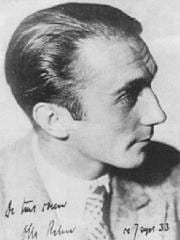
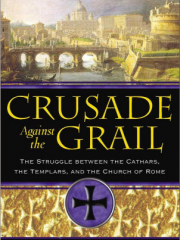

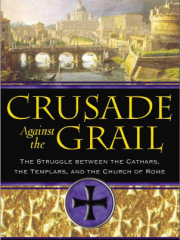
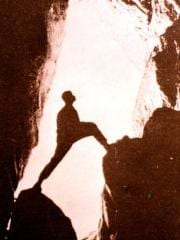
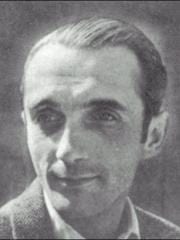
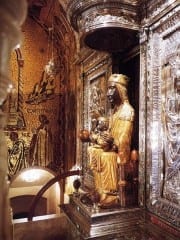
Последние комментарии
13 лет 47 недель назад
13 лет 48 недель назад
13 лет 48 недель назад
13 лет 48 недель назад
13 лет 51 неделя назад
14 лет 5 недель назад